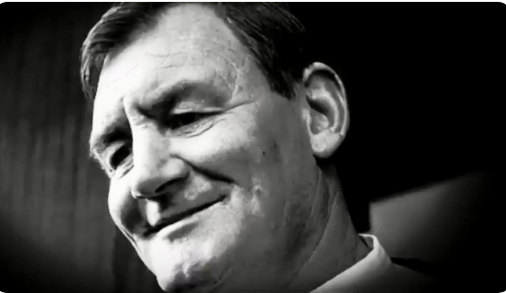Lochore; a True Rugby Great
0Sir Brian Lochore was revered and loved by the NZ rugby public. Undoubtedly a major reason for this was his enduring humility, even though he had a pile of significant achievements in his chosen sport and elsewhere. There’s not much more endearing to the Kiwi psyche than the understatement of the rural man, and Brian Lochore definitely fitted the bill.
That humility being all the more admirable when you look at his successes. He was a man who could achieve the seemingly unachievable. He coerced the two giants of 1980s NZ rugby provincial coaching, John Hart and Alex Wyllie into helping him transform an almost ruinous, Cavalier-stained 1986 All Blacks season into one of the greatest All Black teams of them all, the 1987 World Cup winning team. So utterly dominant across the inaugural tournament were they, their average victory margin when rounded up was an astonishing 50-9.
Lochore pulled a masterstroke in appointing David Kirk as his replacement captain of the ‘87 team after Andy Dalton dropped out through injury, instead of turning to another forwards candidate from the tired old Cavaliers guard. Having the fresh-faced, sharp-minded Kirk as captain must surely have also provided a degree of self-legitimacy to those players from the 1986 ‘Baby Blacks’ who made the cut for the World Cup squad. The move appeared to galvanise the team and put any factionalism to bed. In turn the country got behind them and we were plunged into ‘Rugby fever’ for around four weeks.
The way that Cup-winning team looked to attack was the blueprint for a new era in how the All Blacks would carry on; with cut out passing, backing up the ball carrier and a better standard of fitness than ever before (although the leap in fitness was mostly down to Wyllie’s and then Hart’s involvement with Jim Blair from around 1983). It is proof that Lochore had a shrewd and open-minded rugby brain to go alongside his humble nature.
He hadn’t of course just come from nowhere or been fast-tracked through any old boy’s network into becoming All Black coach. He’d earned his stripes through bringing his home union Wairarapa-Bush up to the heady heights of promotion to NPC Division One in 1981, when the young number eight and future NZ Maori representative who Lochore had brought into the team that season as almost untried, Carlos Baker scored a surging last-minute try in the Invercargill mud over Southland for a 10-9 win in the promotion-relegation play-off.
A legendary All Black in the making, Lochore was first selected for the national team in 1963, after playing the final trial in what would become his regular position of number eight forward- the only thing being that the trial had been the first time in his life playing that position. Pretty incredible.
Lochore was Fred Allen’s captain of choice through the bulk of the great 1965-69 era, when New Zealand broke the record for consecutive test match victories with seventeen. His first series as captain came against the Lions in 1966, when he led an All Black side containing what many contend is among the most iconic, or could indeed be the most iconic forward pack in New Zealand rugby history. The series was won 4-0 and the forwards group remained unchanged in the four tests. For posterity’s sake it was: Lochore (Wairarapa), Nathan (Auckland), Tremain (Hawke’s Bay), Colin Meads, Stan Meads (both King Country), Gray (Wellington), McLeod (Counties), Hazlett (Southland). Note the lack of representation of the main centres. Urban rugby drift was still a far-off glint in the milkman’s eye.
If ever evidence was needed of Brian Lochore being a man of little fuss, it is presented in the book, 101 years of All Black Trivia by Graham Hutchins. In a section about Likes and Dislikes, Lochore lists mashed vegetables as the thing he missed when on tour. It seems somehow very fitting that he should say that. It projects a definite uncomplicatedness.
In fact, as uncomplicated as possible is probably close to what Sir BJ Lochore would have desired rugby union and maybe life to be. Another true great gone, and with him a little bit more of that old school legacy.

